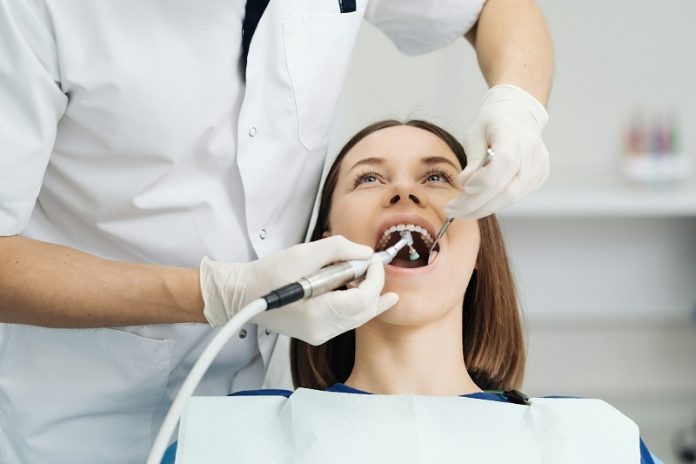
A new research review suggests that dentists could play a crucial role in detecting life-threatening sleep disorders like obstructive sleep apnea (OSA).
This condition, which affects millions of Americans, can lead to serious health problems such as heart disease and stroke if left untreated.
The study, published in the Journal of the American Dental Association, highlights how dentists can identify early warning signs of sleep disorders during routine dental exams.
Dentists often have a unique opportunity to spot signs of OSA before other healthcare professionals.
According to Davis Thomas, a clinical associate professor at Rutgers School of Dental Medicine and lead author of the review, “Dentists can be the first line of defense in identifying sleep disorders.”
Symptoms such as tooth grinding, tongue scalloping (ridges on the edges of the tongue), or even a patient falling asleep in the dental chair could indicate an underlying sleep disorder.
The study points out that sleep apnea often goes undiagnosed, but dentists can help change that by looking for specific signs during examinations.
These signs include enlarged jaw muscles, scalloped tongue edges, white lines on the insides of the cheeks, worn-down teeth, and small cracks in the teeth.
When combined with the patient’s medical history and simple screening tools, dentists can identify people at risk for sleep apnea with up to 80% accuracy.
For many years, teeth grinding (bruxism) was thought to be caused by misaligned teeth, but recent studies show it could be linked to sleep disorders instead.
Thomas explained, “We’ve been treating the symptoms without addressing the root cause for far too long.”
By understanding the connection between teeth grinding and sleep issues, dentists can offer better care and help prevent serious health problems.
To make these changes in practice, Thomas recommends that dental offices start asking sleep-related questions on patient history forms.
He also suggests that dental staff be trained to recognize physical signs of sleep disorders and use screening tools like the STOP-BANG questionnaire, which helps detect obstructive sleep apnea. Dentists can then refer patients to sleep medicine specialists for further evaluation.
“We’re not asking dentists to diagnose sleep disorders,” Thomas said. “We’re asking them to recognize the signs and make appropriate referrals. This simple step could save lives.”
Thomas encourages dentists to educate themselves about sleep medicine through conferences and continuing education courses, as staying informed can lead to better patient care.
If you care about gum health, please read studies about an important causes of tooth decay and gum disease, and common tooth disease that may increase risks of dementia.
For more information about gum health, please see recent studies about mouthwash that may increase your tooth damage, and results showing this diet could help treat gum disease.



